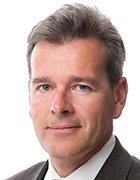
tashatuvango - Fotolia
Kaseya CEO: Reasons for MSPs to be positive
In the face of economic doom and gloom, the fundamental market dynamics are in favour of those that deliver a managed service approach
The managed service provider (MSP) community should be able to weather the economic storm because its customer base continues to require the channel’s support, according to Kaseya’s CEO Fred Voccola, who sits in a position where he can monitor the fortunes of its wide MSP customer base.
The vast majority of MSPs focus on the SME customer base, and the response of those customers to the macroeconomic headwinds is going to be different from enterprise.
“This will be the first economic slowdown where enterprise-facing software companies are going to feel it big time. The last slowdown was 14 years ago – the enterprise was just finishing, or in the middle, of their digital transformation,” he said.
“The enterprise back then was looking for technology to make up and provide more efficiency, or to provide areas of growth for their businesses; so while they cut spending and made tough choices, they were increasing their investments in technology, which means the IT and security that runs them got a big boost. That’s already been done. The low-hanging fruit is gone.
“Now small to mid-sized businesses, the customers of all of our MSPs, are in the halftime of their digital transformation – they’re where the enterprise was 15 years ago. If I’m a solicitor in West London, I am going to spend a higher percentage of my revenue on technology because the economy is slowing down [and] I need to get more efficient and find new markets.”
Voccola said that SMEs had to invest to remain competitive and secure and to provide high levels of service to their own customers.
“From a Kaseya standpoint, we obviously provide a platform for IT and security management for these MSPs, so we’re gonna do well. We do exceptionally well relative to everyone else when the economy gets tough, because we’re 30% cheaper than all of our competitors,” he said.
The MSP community has grown over recent years as traditional channel partners reinvent their offerings and fresh entrants come in with their offerings. Voccola expects that growth to continue because the market dynamics support the managed service approach.
“There are two trends happening. First, the continued digital transformation of small to midsize business as they embrace business applications more,” he said. “And there’s another trend which is super interesting – small IT shops, so a business that has one to 10 people in internal IT, over the course of the next decade are gradually outsourcing some, if not all, of their IT and security.”
That second trend will grow the total addressable market for MSPs considerably and support existing members of the channel community and those that emerge in the next few years.
“The co-management of midmarket is the biggest blue water opportunity for MSPs out there. It’s probably double in the size of the entire MSP market as it stands today. It’s a different market and requires different sales and marketing tactics, but it’s massive,” said Voccola.
He added that, meanwhile, the integration of the Datto business had gone well and the firm was in a strong position as it moved deeper into 2023.
“We’ve completed the Datto acquisition and integration. Datto products and Kaseya systems are integrated and people are integrated with a record year. The fourth quarter was awesome, with organic growth north of 30%, approaching $2bn of annual recurring revenue EBITDA and profit margins in the mid 30s,” he said.
The firm has a big partner conference coming up in Las Vegas in a few weeks, and there will be a number of announcements around enhancements to its complete IT platform that will demonstrate some of the fruits of the integration.
“We have exceeded the operational, financial and integration expectations that we had. It’s been it’s been a wonderful experience,” said Voccola.
“We bought Datto because we wanted to get its technology into our platform. We wanted to lower the cost and integrate everything to make the experience better for everybody. I think we’ve done it, and we’re going to continue to do it,” he added.





